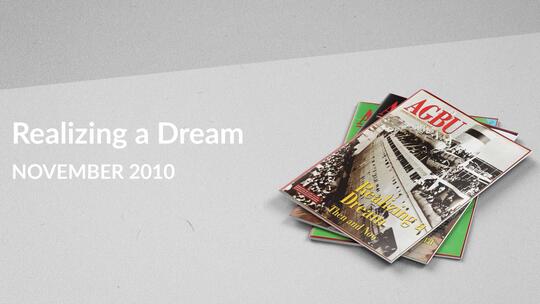By nearly any standard, the lives and careers of Pegor and Marie Lou Papazian are exceptional, measured from Lebanon, to New York, to Spain, to California, and almost to Thailand, before adding Armenia to the twisting journey followed on their professional paths.
At age 46, the couple, who have known each other since their childhood in Beirut, are leading projects in Armenia that would be crowning achievements for most, but for the Papazians come as mid-career challenges and successes that likely are just a beginning.
